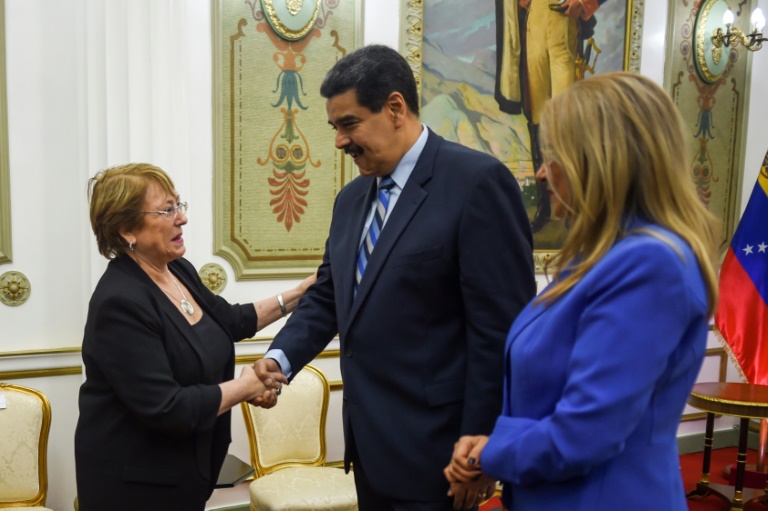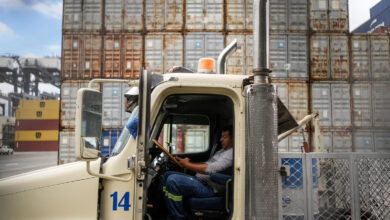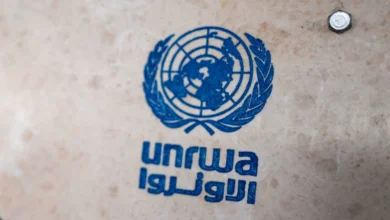
UN High Commissioner for Human Rights Michelle Bachelet called on Venezuela to release jailed dissidents Friday and said the crisis-wracked country faced a “serious” humanitarian situation.
Her comments came at the end of a three-day visit to the country on the invitation of embattled President Nicolas Maduro, who has faced allegations of cracking down on political opponents amid rampant hyperinflation and shortages of basic goods.
“I call on the authorities to release all those who are detained or deprived of their liberty for exercising their civil rights in a peaceful manner,” said Bachelet, referring to the hundreds of Maduro government opponents who are currently incarcerated.
The UN rights chief met relatives of these detainees, many of whom are accused of “conspiracy” to overthrow the government. She also spoke with relatives of people who died during the anti-Maduro protests of 2017.
Rights groups had pushed Bachelet to raise the issue of 715 people they say have been jailed for political reasons, a claim Maduro’s government rejects.
Maduro, meanwhile, said he would respect the recommendations made by Bachelet, a former Chilean president.
“I told her that she can count on me, as president, to take her suggestions, her recommendations and her proposals seriously,” Maduro said, adding that people accused of human rights abuses would be prosecuted.
Bachelet also said she had appointed delegates to remain in the country with the mandate “to provide assistance and technical advice, but also, very importantly, to continue to monitor the human rights situation across Venezuela.”
The high commissioner’s visit came amid the country’s ongoing economic and political crisis that the UN says has caused some four million Venezuelans to flee since 2015 amid collapsing government services and shortages of food.
Bachelet has previously criticized the government’s response to the crisis and called for Caracas to respect “everyone’s fundamental right to peaceful assembly and freedom of expression.”
Yet it was the Maduro government who invited her to Venezuela, saying the visit would be an opportunity to show its adherence to human rights and the “negative repercussions” of sanctions that prevent it from selling its oil to the United States.
‘Skeptical’
Bachelet has also been critical of US sanctions against Maduro imposed by President Donald Trump, raising concerns that restrictions on trade with Venezuela could have negative repercussions for the general population in a country where 96 percent of the budget is based on oil.
During her visit, Bachelet also met with opposition leader Juan Guaido, who is recognized as Venezuela’s interim president by some 50 countries, including the United States.
She called for dialogue between the government and Guaido’s opposition and spoke in support of Norway’s efforts to broker talks.
Delegates from both sides met there for the first time in May, but progress has since stalled.
“I understand that some are skeptical that these sorts of negotiations will bear fruit, but the serious situation in the country demands that the leaders try,” Bachelet said.
Image: AFP / YURI CORTEZ UN High Commissioner for Human Rights Michelle Bachelet (L) called for Venezuelan President Nicolas Maduro (C) to release jailed dissidents




